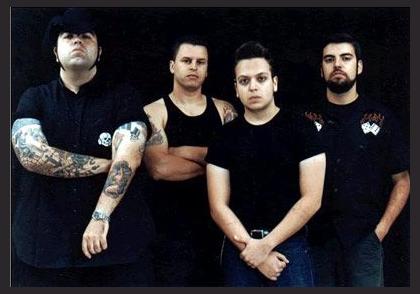 Zumbis do Espaço
Zumbis do Espaço
Zumbis do Espaço: The Rise and Controversies of a Brazilian Punk Phenomenon
Emerging from the bustling streets of São Paulo, Zumbis do Espaço emerged as a formidable force in the burgeoning Brazilian punk scene. Their anthemic song "Onde Os Fracos Não Tem Vez" (Where the Weak Do Not Belong) became a rallying cry for the marginalized and disenfranchised.
Origins and Members:
The band was founded in 1983 by three friends: vocalist Leo Cavalcanti, guitarist Plínio Profeta, and bassist Fernando Esteves. They were later joined by drummer Otávio "Tavinho" Carvalho. Inspired by the raw energy of punk pioneers like The Clash and Sex Pistols, Zumbis do Espaço sought to create music that reflected the raw realities of life in Brazil.
Challenges and Controversies:
The band's rise to prominence was not without challenges. Their lyrics, often laced with political commentary and social criticism, drew the ire of the military dictatorship that ruled Brazil at the time. They faced censorship, harassment, and even threats of violence.
Despite the adversity, Zumbis do Espaço refused to be silenced. Their music became a powerful voice for those whose voices had been stifled. "Onde Os Fracos Não Tem Vez" resonated with the masses, becoming a symbol of resistance and resilience.
Discography:
Over their illustrious career, Zumbis do Espaço released numerous albums that cemented their status as one of Brazil's most influential punk bands. Notable releases include:
* Somos Todos Iguais (1985)
* Pra Quem Fica Pra Quem Vai (1986)
* Só Protesto Pra Não Morrer (1989)
* Quatro Balas (1992)
* O Som da Rua (2003)
Legacy and Impact:
Zumbis do Espaço's legacy extends far beyond their music. They played a pivotal role in shaping the Brazilian punk movement and inspired countless other bands. Their songs continue to serve as a source of inspiration and empowerment for generations of fans.
Despite the controversies they faced, Zumbis do Espaço remain one of the most important and influential bands in Brazilian rock history. Their music continues to resonate with audiences who seek solace, strength, and a voice for the voiceless.
Emerging from the bustling streets of São Paulo, Zumbis do Espaço emerged as a formidable force in the burgeoning Brazilian punk scene. Their anthemic song "Onde Os Fracos Não Tem Vez" (Where the Weak Do Not Belong) became a rallying cry for the marginalized and disenfranchised.
Origins and Members:
The band was founded in 1983 by three friends: vocalist Leo Cavalcanti, guitarist Plínio Profeta, and bassist Fernando Esteves. They were later joined by drummer Otávio "Tavinho" Carvalho. Inspired by the raw energy of punk pioneers like The Clash and Sex Pistols, Zumbis do Espaço sought to create music that reflected the raw realities of life in Brazil.
Challenges and Controversies:
The band's rise to prominence was not without challenges. Their lyrics, often laced with political commentary and social criticism, drew the ire of the military dictatorship that ruled Brazil at the time. They faced censorship, harassment, and even threats of violence.
Despite the adversity, Zumbis do Espaço refused to be silenced. Their music became a powerful voice for those whose voices had been stifled. "Onde Os Fracos Não Tem Vez" resonated with the masses, becoming a symbol of resistance and resilience.
Discography:
Over their illustrious career, Zumbis do Espaço released numerous albums that cemented their status as one of Brazil's most influential punk bands. Notable releases include:
* Somos Todos Iguais (1985)
* Pra Quem Fica Pra Quem Vai (1986)
* Só Protesto Pra Não Morrer (1989)
* Quatro Balas (1992)
* O Som da Rua (2003)
Legacy and Impact:
Zumbis do Espaço's legacy extends far beyond their music. They played a pivotal role in shaping the Brazilian punk movement and inspired countless other bands. Their songs continue to serve as a source of inspiration and empowerment for generations of fans.
Despite the controversies they faced, Zumbis do Espaço remain one of the most important and influential bands in Brazilian rock history. Their music continues to resonate with audiences who seek solace, strength, and a voice for the voiceless.